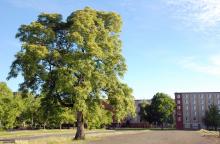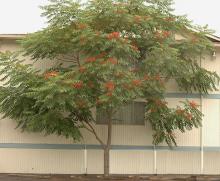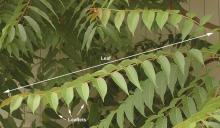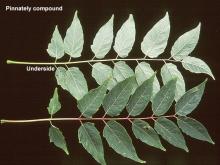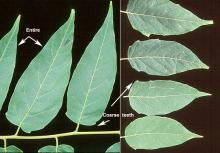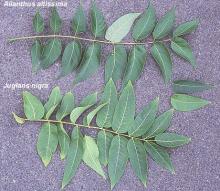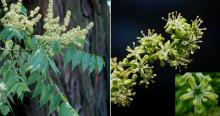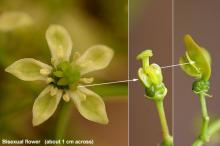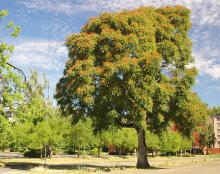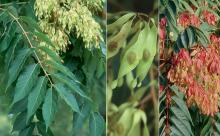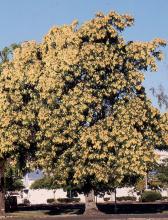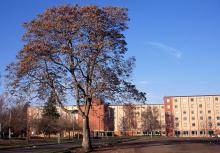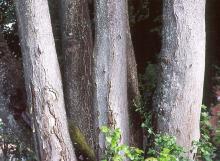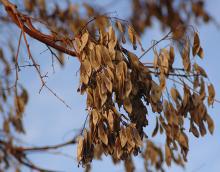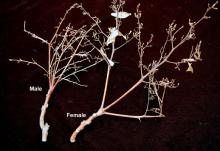Ailanthus altissima
Common name:
Tree of Heaven
China-sumac
Varnishtree
Pronunciation:
a-LAN-thus al-TIS-i-ma
Family:
Simaroubaceae
Genus:
Type:
Broadleaf
Native to (or naturalized in) Oregon:
No
- Broadleaf deciduous tree, 40-60 ft (12-18 m), upright spreading to shrubby. Bark is grayish and slightly roughened. Leaves alternate, pinnately compound, large, 50-60 cm long, 13-25 leaflets, each leaflet 7.5-13 cm long, appear entire (actually with fine marginal hairs) except for 2-4 coarse teeth near leaflet base. Dioecious - male and female trees, but some trees have both sexes and some flowers appear bisexual (have both male and female parts). Flowers small, yellow-green, in 20-40 cm long clusters; male flowers have a repulsive odor (hence its Chinese common name is Stinking Chun). Fruit (samara) 4 cm long, often bright orange-red then finally brown, persist into winter.
- Sun. The most adaptable and pollution tolerant tree available. Withstands soot, grime, and pollution of cities, where it is common. It spreads by seeds and root suckers. Suckers may appear as much as 150 ft (45 m) from the trunk (Jacobson, 1996). Its root system is aggressive enough to cause damage to sewers and foundations. A tough tree, which some consider a weed with "no landscape value". The tree of, A Tree Grows in Brooklyn, a 1943 novel by Betty Smith and a 1945 movie directed by Elia Kazan.
- Hardy to USDA Zone 4 Native to China, now found in Europe and naturalized over much of the U.S.
- Caution: It is considered a highly invasive species because it is a prolific seed producer, grows rapidly, and can overrun native vegetation. Once established, it can quickly take over a site and form an impenetrable thicket. (Less tolerant plant enthusiasts have been known to call it The Tree from Hell, although there is no theological discourse in support of this claim). Reportedly the trees produce toxins that prevent the establishment of other plant species (Mergen,F. Bot. Gaz. 122:32-36 (1959); Heisey,R.M. Amer. J. Bot 77:662-670, 1988).
- Ailanthus: from ailanto, an Indonesian name for A. molucuanna or A. intergrifolia, meaning Tree of Heaven, or 'Reaching for the Sky', referring to tree height. Also a Latin superlative meaning very high or tallest; altissima: from alta, high.
- There is also a selection, A. altissima f. erythrocarpa, that produces "bright red seeds". The name is from the Greek, erythros, red, and carpos, fruit (Jacobson, 1996).
Click image to enlarge

